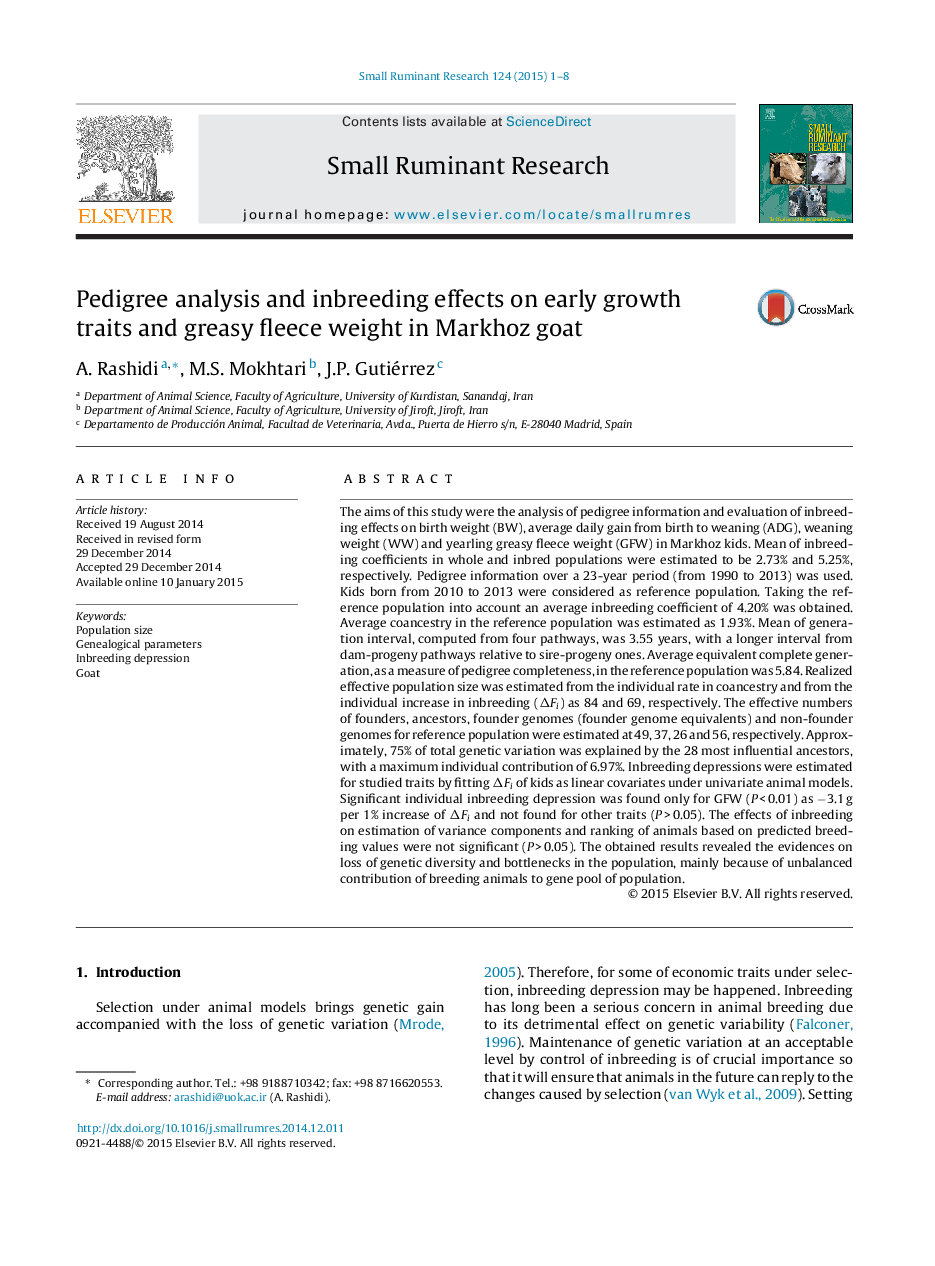| Article ID | Journal | Published Year | Pages | File Type |
|---|---|---|---|---|
| 5795606 | Small Ruminant Research | 2015 | 8 Pages |
â¢Genetic diversity of Markhoz goat was studied by pedigree analysis.â¢About 75% of total genetic variation was explained by the 28 most influential ancestors.â¢Significant individual inbreeding depression was found for greasy fleece weight.â¢Genetic variability decreased due to unbalanced contribution of breeding animals.â¢Variance components were not changed significantly by inbreeding.
The aims of this study were the analysis of pedigree information and evaluation of inbreeding effects on birth weight (BW), average daily gain from birth to weaning (ADG), weaning weight (WW) and yearling greasy fleece weight (GFW) in Markhoz kids. Mean of inbreeding coefficients in whole and inbred populations were estimated to be 2.73% and 5.25%, respectively. Pedigree information over a 23-year period (from 1990 to 2013) was used. Kids born from 2010 to 2013 were considered as reference population. Taking the reference population into account an average inbreeding coefficient of 4.20% was obtained. Average coancestry in the reference population was estimated as 1.93%. Mean of generation interval, computed from four pathways, was 3.55 years, with a longer interval from dam-progeny pathways relative to sire-progeny ones. Average equivalent complete generation, as a measure of pedigree completeness, in the reference population was 5.84. Realized effective population size was estimated from the individual rate in coancestry and from the individual increase in inbreeding (ÎFi) as 84 and 69, respectively. The effective numbers of founders, ancestors, founder genomes (founder genome equivalents) and non-founder genomes for reference population were estimated at 49, 37, 26 and 56, respectively. Approximately, 75% of total genetic variation was explained by the 28 most influential ancestors, with a maximum individual contribution of 6.97%. Inbreeding depressions were estimated for studied traits by fitting ÎFi of kids as linear covariates under univariate animal models. Significant individual inbreeding depression was found only for GFW (PÂ <Â 0.01) as â3.1Â g per 1% increase of ÎFi and not found for other traits (PÂ >Â 0.05). The effects of inbreeding on estimation of variance components and ranking of animals based on predicted breeding values were not significant (PÂ >Â 0.05). The obtained results revealed the evidences on loss of genetic diversity and bottlenecks in the population, mainly because of unbalanced contribution of breeding animals to gene pool of population.
